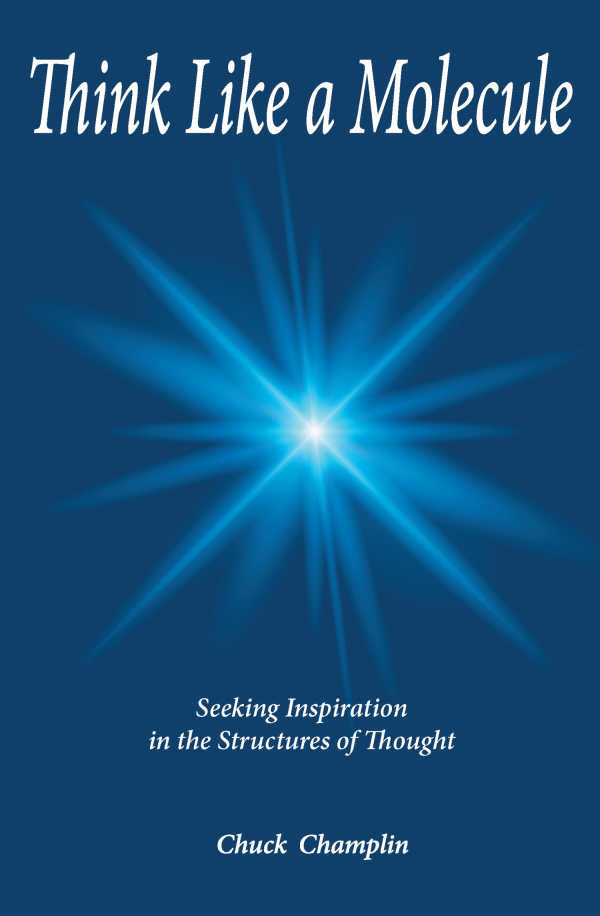Think like a Molecule
Seeking Inspiration in the Structures of Thought
Think Like a Molecule is a science-minded self-help book that suggests ways of capturing and organizing one’s thoughts to bring about a better world.
Journalist and educator Chuck Champlin’s science- and philosophy-based self-help book Think Like a Molecule extrapolates lessons from the way that basic units of life act and are acted upon.
“Thinking like a molecule means noticing how physical things and people come together, how they work in combinations, and imagining new ways that these combinations can be replicated and improved,” writes Champlin. Recording his personal explorations into the physical, material foundations that give rise to thoughts, this book addresses the underlying connections and unseen influences that can lead to interesting insights on topics like science and the divine. Its tone is one of wonder, as when it marvels over the emergence across millions of years of minds that can reason and that are creative.
With advice revolving around the lighthearted image of the “Twinkle,” the book suggests means of awakening one’s inner child and nurturing creative thoughts and ideas. It sees the magical potential of such thoughts, treating them as foundational means of mapping one’s mind, and as that upon which one can structure and describe real and hypothetical concepts and model new visions for the world. Still, the book’s explanations of how the mental image of the Twinkle can be used (to capture and mark moments of creative inspiration, to develop inventions, and to foster follow-through on creative outputs) are quite lengthy, if enthusiastic.
On its more scientific side, the book includes examples of the ways that molecules work together to form effective systems. It intones that humanity is part of a vast universe in which each part, from the smallest to the largest, acts and is acted upon. Its wide-ranging explorations of life on planet Earth are intriguing, though they also have disturbing elements, as when the book addresses a conundrum facing those who value the lives of all sentient beings: that human survival seems to depend upon killing and eating other creatures. Simple compartmentalizations (meat eating, the book suggests, is humanity’s “original sin”; it uses a story of God being responsible for the sacrifice and ritual eating of his son to put people at ease at their dinner tables) are suggested as solutions to such problems, but they are not wholly convincing. Additionally, the book’s punctuation errors, missing and extra words, and spelling errors are points of distraction.
Marrying science, religion, and creativity, Think Like a Molecule is a self-help book that suggests ways of capturing and organizing one’s thoughts to bring about a better world.
Reviewed by
Kristine Morris
Disclosure: This article is not an endorsement, but a review. The publisher of this book provided free copies of the book and paid a small fee to have their book reviewed by a professional reviewer. Foreword Reviews and Clarion Reviews make no guarantee that the publisher will receive a positive review. Foreword Magazine, Inc. is disclosing this in accordance with the Federal Trade Commission’s 16 CFR, Part 255.

